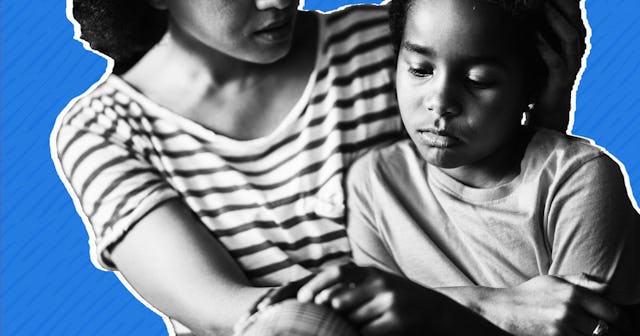I Didn't Accept Help When I Needed It, And My Friends Stopped Offering

My daughter wasn’t born with “special needs.” Not that healthy children come with labels, but she was what the medical community would call “neurotypical” for the first 9 years of her life. Then, illness rocked our worlds.
PANDAS and autoimmune encephalitis, to be specific. Wicked diseases, stemming from strep, that robbed her of all normalcy. Conditions that made her hallucinate and seize — and at their worst, left her unable to walk, talk or even swallow. And together, as she fought for remission, we relearned life.
At first, it was overwhelming. The diagnosis, the research, and even the outpouring of support.
I was transitioning from being a mom to a medical care provider and patient advocate. I had to, for her. As I was poring over journal articles, pleading for life saving treatments and watching oxygen monitors, friends were reaching out, dropping off meals and visiting. But our worlds were now different. And for many it was the first time they’d seen her “sick,” and nobody knew how to respond.
They’d say, “I’m sorry.” And I’d take offense. Neither she nor I needed pity.
Or, they’d say “I don’t know how you’d do it.” And I’d mutter “I don’t have a choice.”
People didn’t know what else to do but look away. And although I couldn’t blame them, as the transformation was painful to see, I resented them for it.
That self-righteous anger and hurt isolated me. And it prevented me from asking for the help I now know any one of them would have given.
I had a mean game face. I got things done, only crying in private. Which is how I thought it was supposed to be. I attended appointments, tests and IEP meetings alone. And as I continued doing things by myself, people stopped offering help. The less I was around my friends, the less they “got it.” And when things turned around for her, like when she spoke for the first time again, I had no one to turn to, no one to celebrate with who understood just how monumental this was.
Her world, and the worlds of her peers, had changed — but not together. And it was lonely.
Then, one day, maybe two years into my daughter’s illness, a proverbial window cracked. And hope peeked through.
It was a bad day. Gracie was in the hospital. I’d had to cancel on yet another commitment. And rather than being inconvenienced, the person I cancelled on came and sat with me. It was a humbling example that I didn’t have to fight through things alone. “She’s not in a good place,” I apologized. But they didn’t care. They were there because they loved me, and my girl. As we were.
And that’s the day when something within me changed. I stopped trying to be strong, stopped expecting either Gracie or myself to be who we were before her illness. And again, we found joy. We found a community of people who loved us, for us. Some friends from before, some new. Some with shared experiences, some without. And we learned from each other.
And Gracie thrived.
Courtesy of Cara Arnold
She joined an “exclusive car club” for kids with special needs, and charmed her driver, making a forever friend. She played softball and kickball for inclusive leagues, delighting in “normal” experiences once more. She raised funds for our local animal shelter and took part in swim lessons. She found a teacher she “clicked” with, reunited with neighborhood friends, and took back her childhood. Things were different — but we brought no expectations of anything else.
Courtesy of Cara Arnold
I wish I could say these things were made possible because her health improved, but the fact is, it’s still pretty fragile. She’s in a wheelchair and her speech comes and goes, but her passion for life is unwavering. And because she’s unapologetic about it, people no longer tip toe around it.
This isn’t the life I’d planned — and I would trade it for a more “neurotypical” one in a heartbeat. Nevertheless, it is the path we’re on, and I’m thankful for the village we’ve opened our eyes to along the way.
We are Scary Mommies, millions of unique women, united by motherhood. We are scary, and we are proud. But Scary Mommies are more than “just” mothers; we are partners (and ex-partners,) daughters, sisters, friends… and we need a space to talk about things other than the kids. So check out our Scary Mommy It’s Personal Facebook page. If your kids are out of diapers and daycare, our Scary Mommy Tweens & Teens Facebook page is here to help parents survive the tween and teen years (aka, the scariest of them all.)
This article was originally published on